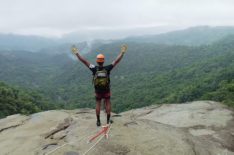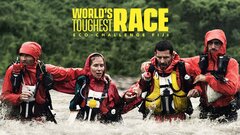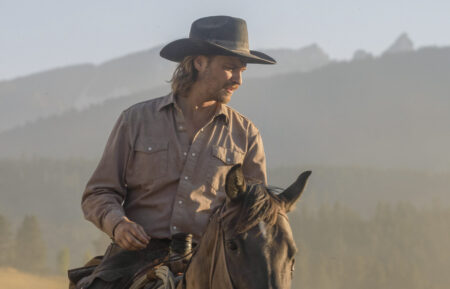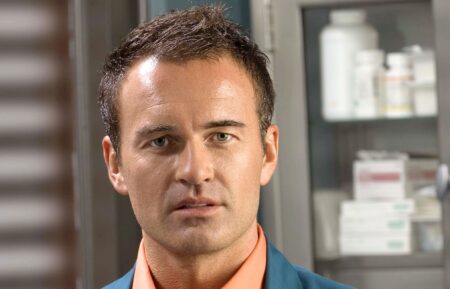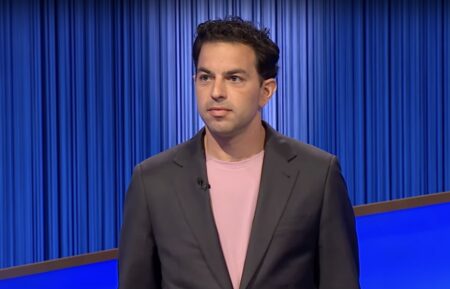‘World’s Toughest Race’ Host Bear Grylls: ‘There’s a Possibility No One Will Finish’
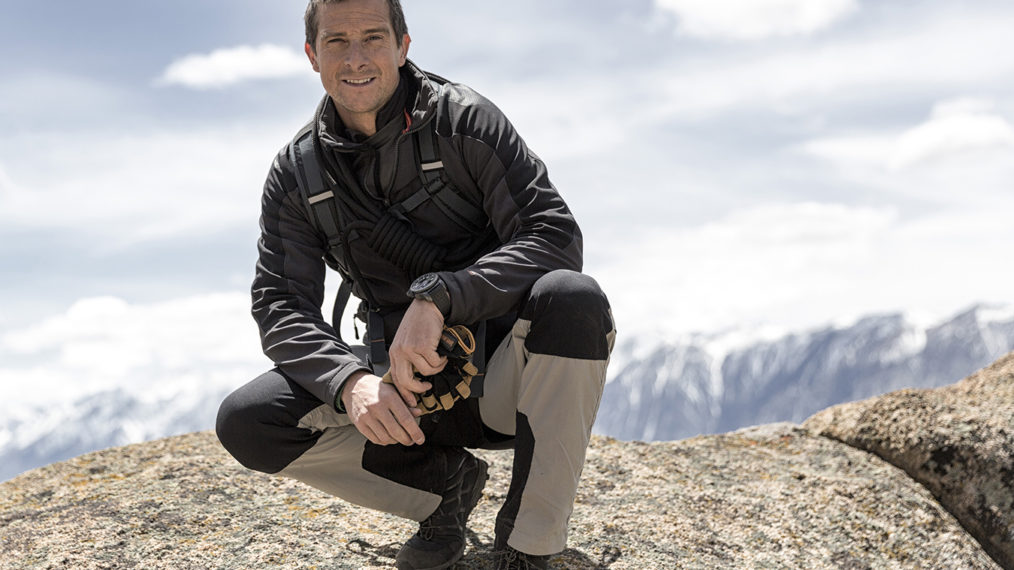
Preview
It’s barely 7 a.m. on a muggy morning in Fiji, but the tiny village of Draubuta is already teeming with activity. A swarm of people from all around the world head down a narrow pathway to the Wainibokasi River. They break off into 66 teams of four, scrambling down a steep embankment to load supplies into waiting camakau, Fijian outrigger canoes, and huddle to discuss last-minute strategy for the epic adventure they’re about to start, World’s Toughest Race: Eco-Challenge Fiji.
Adventurer Bear Grylls, who’s on hand as host of the reality series, begins counting down — “Five, four, three, two, one, go!” — and the teams take off, slicing their oars into the water. The vessels crowd the waterway, and one boat flips, taking its racers down. Moments later, another boat flips.
And that’s just the first few seconds. Over the next 11 days, the teams intend to travel more than 400 miles across this South Pacific archipelago, hiking, boating, biking and climbing their way through scorching beaches, wild rivers, dense jungles and steep ravines. (A fifth member, who cooks for the team and handles supplies, awaits them at checkpoints.)
Making matters more difficult? There’s no nightly rest stop where the teams regroup and recharge. The racers — its U.S. contingent includes Wounded Warriors, the all-Black Team Onyx and a son competing alongside his Alzheimer’s-afflicted dad — can push themselves for 24 hours a day.
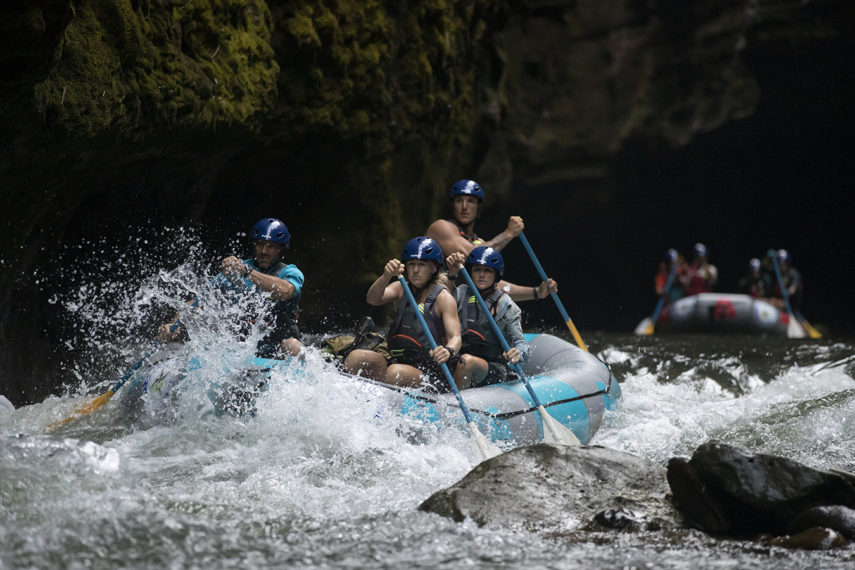
Team Regulators from the United States (Steven Bell, Joshua Watkins, Heather Gustafson, Crista Jorgensen and Jason Hull) during the 2019 Eco-Challenge adventure race (Krystle Wright/Amazon)
The first team that reaches the finish line wins bragging rights and $100,000. If anyone gets to the end, that is. “There is a possibility,” host Bear Grylls said in an interview the day before the racers set off last September, “that no one will finish.” Creator and producer Mark Burnett agreed, but said the unpredictability is all part of the thrill: “It’s great fun, eh?”
The show marks a return to Burnett’s roots. Before he challenged players to outwit, outplay and outlast each other on Survivor, he made his first foray into reality TV with Eco-Challenge: The Expedition Race, broadcast on MTV in 1995 (later seasons aired on ESPN and the Discovery Channel).
Though Survivor eclipsed Eco-Challenge in popularity, die-hard fans never forgot about the series, which ended in 2002. “People have been asking me all the time, ‘Why don’t you do that again?’” says Burnett, who recalls mentioning that to his friend Grylls in 2018. “ Bear says, “Mark, if you ever do that, I want to be in it. In two short weeks we made an agreement.”
Pulling it off took much longer. Making the race “bigger, badder, stronger [and] harder than ever before,” as Grylls puts it, required months of careful planning and hiring a crew of nearly 700 highly-skilled people, including military-trained medical professionals and camera operators who have summited Mt. Everest.
It was a Herculean team effort — much like the one the racers face. After all, if any one member drops out or is injured and can’t continue, the entire team is disqualified. “That’s enormous pressure,” says Burnett. “And great drama.”
World’s Toughest Race: Eco-Challenge Fiji, Series Premiere, Friday, August 14, Amazon Prime Video

